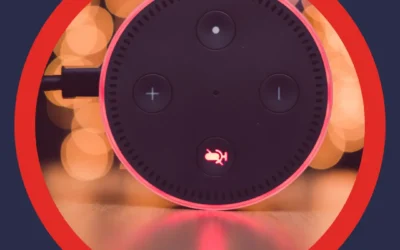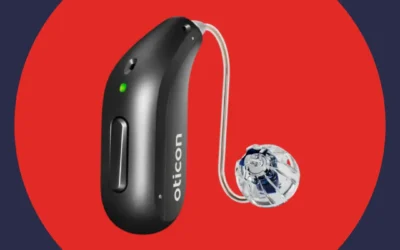Hearing aid batteries are essential for reliable hearing aid performance. Without power, your hearing aids can’t function. Choosing the right hearing aid battery ensures sound clarity, comfort, and everyday confidence. Whether you prefer rechargeable or disposable batteries, understanding the differences helps you make informed choices that fit your lifestyle and needs.
Types of Hearing Aid Batteries
There are two primary types of hearing aid batteries: zinc-air (disposable) and rechargeable. Each type offers specific advantages depending on hearing aid style, user dexterity, and environmental priorities.
Zinc-Air Disposable Batteries
Zinc-air batteries used to be the most common type used in hearing aids. They are air-activated, which means they begin working once you remove the adhesive tab. Once the tab is removed, air enters the battery and activates the zinc inside.
These batteries are not rechargeable. Once power is depleted, the battery must be replaced. They are typically sold in multi-packs and are affordable and widely available.
Sizes and Color Codes
Every hearing aid uses a specific battery size. Industry-standard color codes make it easier to select the right one:
- Size 10 (Yellow): Used in CIC and RITE styles. Compact size means shorter battery life.
- Size 312 (Brown): Common in RITE and ITC hearing aids. Offers moderate battery life.
- Size 13 (Orange): Suits BTE and ITE models. Balances power and longevity.
- Size 675 (Blue): Powers high-demand BTE hearing aids for longer durations.
Always confirm the correct battery size for your device with your hearing care provider.
Battery Life Expectations
Battery life varies depending on size, hearing aid features, and usage duration:
- Size 10: 3–7 days on average
- Size 312: 3–10 days
- Size 13: 6–14 days
- Size 675: 9–20 days
High-volume levels, Bluetooth streaming, and noisy environments may reduce battery life. Storing batteries properly also impacts longevity.
Rechargeable Hearing Aid Batteries
Rechargeable batteries have grown in popularity for their convenience and environmental benefits. Most newer hearing aids include lithium-ion rechargeable batteries that offer full-day power.
Rechargeable Battery Features
- Lithium-Ion: The most common rechargeable battery in modern hearing aids. Provides consistent daily performance.
- Nickel-Metal Hydride (NiMH): Used in some older models. Less common today.
- Charging Stations: Most hearing aids come with designated charging docks. Place your hearing aids in the dock each night for a full charge.
- Premium Chargers: Some brands and styles have premium chargers that can help devices charge faster or charge without a power source.
Charging indicators show progress. Most systems automatically stop charging once full, preventing overcharging.
Discover more about hearing aid accessories.
Pros and Cons of Battery Types
Zinc-Air (Disposable) Batteries
Pros:
- Inexpensive and widely available
- Compatible with most hearing aid models
- Easy to replace with minimal equipment
Cons:
- Require frequent changes
- Shorter life in high-tech devices
- Generate more waste
- Harder to manage with limited hand dexterity
Rechargeable Batteries
- Environmentally friendly
- No need to buy replacements often
- Ideal for people with dexterity issues
- Simple daily routine
Cons:
- Higher initial cost
- Require regular access to electricity
- Limited availability in some older hearing aid models
Discover more about hearing device costs.
How to Maximize Hearing Aid Battery Life
Extend your hearing aid battery life by adopting a few easy habits. This applies to both disposable and rechargeable types.
For Zinc-Air (Disposable) Batteries:
- Store batteries in a cool, dry location. Avoid bathrooms and extreme temperature zones.
- Wait 5–7 minutes after removing the tab before inserting the battery. This activates power fully.
- Open the battery compartment overnight. This prevents moisture buildup and battery drain.
- Keep batteries in original packaging until use to prevent early activation.
- Handle batteries with clean, dry hands. Oil or dirt may interfere with battery contacts.
- Avoid metal contact. Keys, coins, or metal objects can cause short-circuiting.
- Use before the expiration date. Expired batteries lose effectiveness.
For Rechargeable Batteries:
- Charge your hearing aids every night. Create a routine for consistent power.
- Keep charging contacts clean. Dirt buildup can interfere with proper charging.
- Avoid storing hearing aids in an unplugged charger. Use a designated storage case instead.
- Follow manufacturer instructions. Use only approved chargers and accessories.
- Don’t let batteries fully discharge. Regular recharging helps maintain lifespan.
- Avoid extreme heat or cold. These conditions reduce battery performance.
Where to Buy Disposable Hearing Aid Batteries
Quality batteries ensure better performance and longer use. Purchase from reputable sources:
- Pharmacies: Most chain and local pharmacies stock hearing aid batteries.
- Online Retailers: Look for trusted brands and review expiration dates.
- Hearing Care Provider Offices: Your provider can offer reliable batteries matched to your hearing aid model.
- American Hearing’s Online Store: You can order from our online store, getting the convenience of shopping online and the security of buying from reputable hearing care provider.
You can also explore subscription or bulk purchase options to save time and money.
Battery Safety Tips
Proper safety practices protect you and those around you.
- Keep batteries away from children and pets. Swallowing button batteries is dangerous.
- Know what to do in emergencies. Seek medical help immediately if ingestion occurs.
- Dispose of batteries correctly. Follow local disposal or recycling guidelines.
- Never store batteries near metal items. This prevents accidental short-circuiting.
- Never poke or insert batteries into body parts. Serious injury can result.
Factors to Consider When Choosing a Hearing Aid Battery
Selecting the right battery type depends on your lifestyle, needs, and device features. Consider all factors before deciding between rechargeable and disposable options.
- Dexterity: Rechargeable batteries are easier to manage if you have difficulty handling small items.
- Lifestyle: If you travel often or lack access to charging, disposable batteries may offer more flexibility.
- Budget: Rechargeables cost more upfront but reduce long-term battery purchases.
- Usage Patterns: Rechargeable hearing aids often support advanced features like Bluetooth, streaming, and noise filtering. If you use these regularly, rechargeable models may better meet your needs.
- Technology Preferences: Rechargeable hearing aids usually include the latest innovations. If you prefer top-tier sound processing and connectivity, rechargeable options offer added benefits.
- Environmental Values: Rechargeables reduce battery waste and support a greener lifestyle.
These considerations help you choose a battery solution that aligns with your daily habits and goals.
Explore the best hearing aids for noisy environments.
Managing Your Battery Supply
Once you know your battery needs, managing your supply becomes simple and efficient. Smart planning prevents interruptions in device performance.
- Track your usage rate. Estimate how many batteries you use each month.
- Buy in bulk. Larger purchases lower costs and ensure you have backups.
- Set reminders. Use a calendar or smartphone app to schedule reorders.
- Rotate stock regularly. Always use older batteries first to avoid waste from expired units.
Good battery supply management helps keep your hearing experience seamless and stress-free.
Let American Hearing + Audiology Help You Choose
Selecting the right hearing aid battery impacts your comfort, convenience, and hearing aid performance. Whether you need guidance on rechargeable systems or disposable battery types, American Hearing + Audiology is here for you.
Our knowledgeable hearing care providers offer personalized support, reliable battery recommendations, and helpful advice to keep your hearing aids working smoothly.
Contact American Hearing + Audiology today and discover the right battery solution for your lifestyle.



